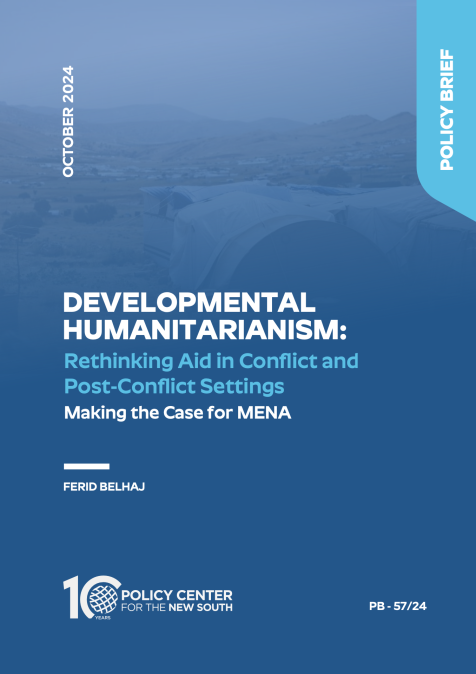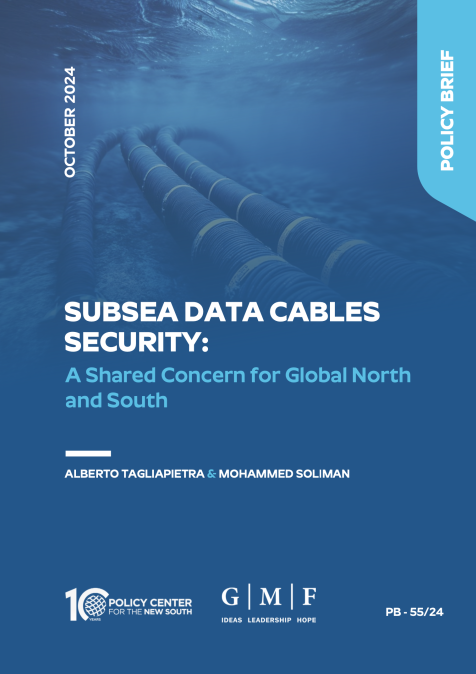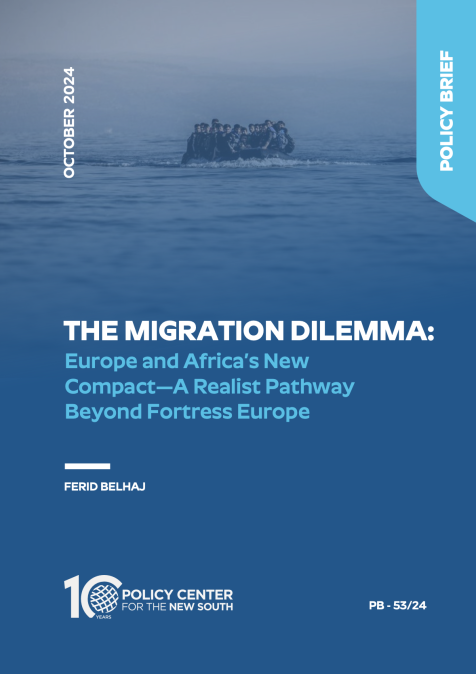In this interview with François Reybet-Degat, we explore the complex challenges and strategies involved in managing and mitigating refugee situations, especially in conflict-affected areas. We discuss how various regions, including both state and non-state actors, respond to the influx of refugees, taking into account political, economic, and social factors. The conversation also covers international cooperation, humanitarian aid, and policy frameworks designed to offer support and sustainable solutions for displaced populations. Reybet-Degat’s insights illuminate the intricacies of regional responses and the efforts to coordinate effective assistance and integration strategies.
RELATED CONTENT
-
January 7, 2025يخصص مركز السياسات من أجل الجنوب الجديد حلقة برنامجه الأسبوعي "حديث الثلاثاء" لمناقشة موضوع "دور معاهد التخطيط في تعزيز التنمية المستدامة ''. تُعد معاهد التخطيط مؤسسات علمية مهمة لدعم التنمية المستدامة من خلال توفير البيانات والتقارير والإحصاءات الدقيقة، مما يسهم في صياغة سياسات مبنية ع...
-
December 19, 2024This episode examines the contrasting approaches to migration governance between Africa and Europe, where over 70% of African migration occurs within the continent, emphasizing regional integration and development, while European strategies prioritize externalization, border security, a...
-
 AuthorsBilal MahliNovember 14, 2024The Middle East and North Africa (MENA) region is characterised by its diversity in political systems, economic conditions, and social structures. It is home to a mix of high-income countries such as Qatar, Saudi Arabia, and the United Arab Emirates, as well as low-income and conflict-affected states like Yemen and Iraq. This diversity creates a complex environment for think tanks. Political instability in some areas, coupled with economic uncertainty, presents a challenging landsca ...
AuthorsBilal MahliNovember 14, 2024The Middle East and North Africa (MENA) region is characterised by its diversity in political systems, economic conditions, and social structures. It is home to a mix of high-income countries such as Qatar, Saudi Arabia, and the United Arab Emirates, as well as low-income and conflict-affected states like Yemen and Iraq. This diversity creates a complex environment for think tanks. Political instability in some areas, coupled with economic uncertainty, presents a challenging landsca ... -
AuthorsOctober 22, 2024Significant historical milestones have redefined global power structures and shaped the evolution of transatlantic relations. From the Peace of Westphalia to the end of the Cold War, international relations have undergone major transitions. The fall of the Soviet Union and the dissolution of the Eastern Bloc created new dynamics within the transatlantic alliance, offering both challenges and opportunities for Western countries to realign their strategies in a rapidly changing world. ...
-
AuthorsOctober 22, 2024This paper explores the urgent need for a paradigm shift in humanitarian aid within conflict and post-conflict settings in the MENA region, advocating for a ‘developmental humanitarianism’ approach that integrates immediate relief with long-term development goals. Focusing on the limitations of traditional aid, particularly in protracted crises such as in Iraq, Yemen, Lebanon, and Gaza, the paper argues for innovative financing mechanisms and a realist perspective that aligns humani ...
-
AuthorsAlberto TagliapietraMohammed SolimanOctober 18, 2024Subsea data cables are essential to the functioning of today’s globally and digitally connected economies and societies. The world’s emails, bank transfers, WhatsApp messages, and social media posts travel through undersea cables. Dependence on this infrastructure continues to deepen, leading states and regional organizations to recognize the need to provide adequate protection to an infrastructure that is fragile and vulnerable to unintentional (and intentional) disruption. ...
-
October 18, 2024Rachid El Houdaigui's article, "The New Euro-Mediterranean Context: What Direction for the Morocco-European Union Partnership?" analyzes three crucial tendencies contributing to transforming the Euro-Mediterranean paradigm. The article discusses the significant impacts of global geopol...
-
October 17, 2024Migration trends across Africa are shaped by economic pressures, climate change, and political instability. These factors drive movement both within the continent and beyond, creating significant challenges for migrants, including legal obstacles and difficulties with social integration...
-
AuthorsOctober 16, 2024The issue of migration between Europe and Africa is not just a humanitarian or social dilemma, but a strategic challenge that will shape the twenty-first century. At its core, it reflects the collision of powerful forces—migration, climate change, human development, energy resources, rare commodities, and demographic pressures—each with significant geopolitical implications. Among these, migration, climate change, and human development stand out as critical issues that exacerbate an ...
-
AuthorsMariam Ait MerriSeptember 30, 2024The bilateral relationship between Morocco and India has passed through three distinct phases, culminating in the current stage of strategic partnership. Initially marked by diplomatic formalities and limited engagement, the relationship gradually transitioned into a period of economic and cultural exchange, laying the groundwork for more substantial collaboration. This Policy Paper analyzes the historical trajectory of Morocco-India relations, tracing the development from these ear ...







